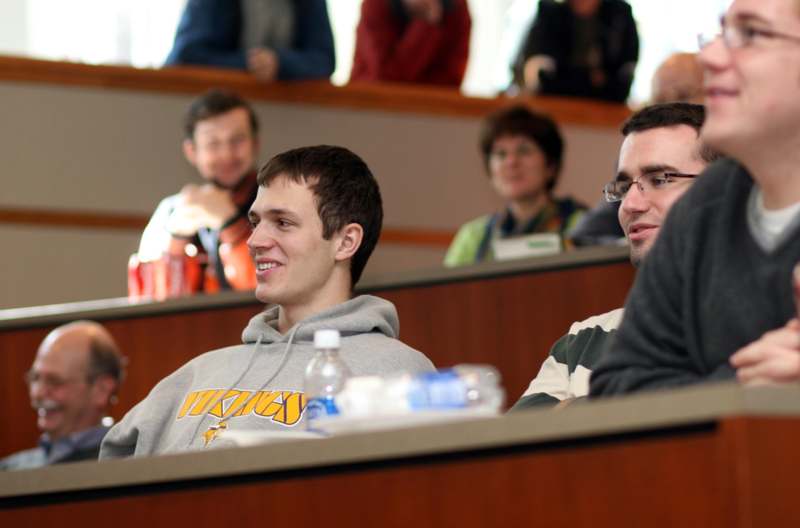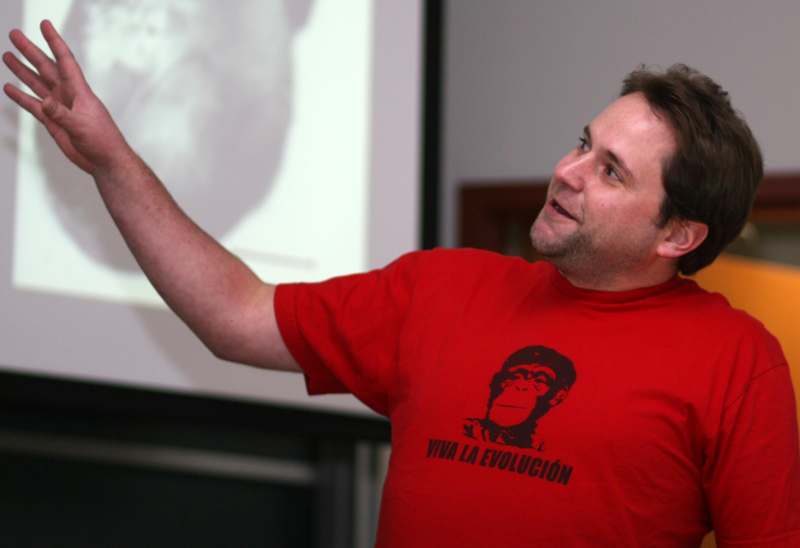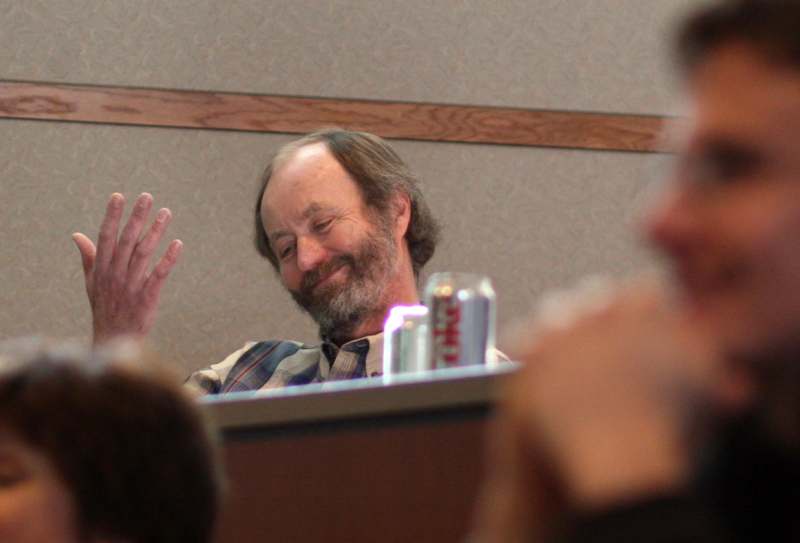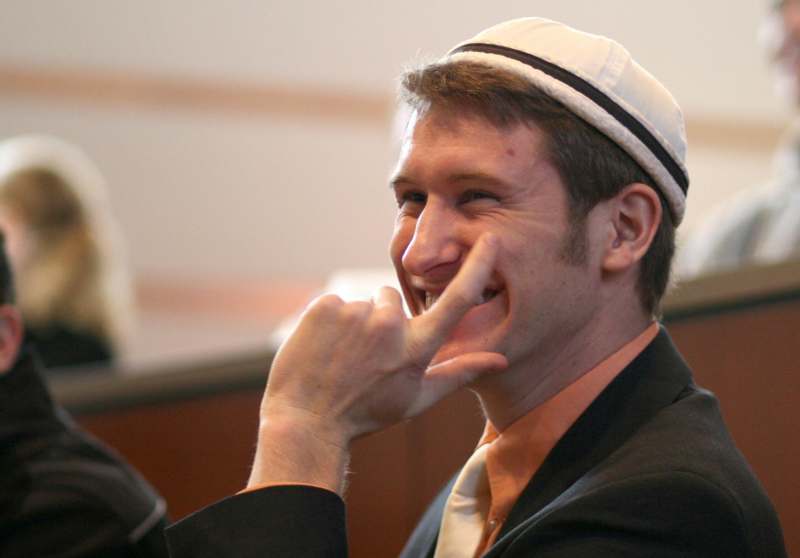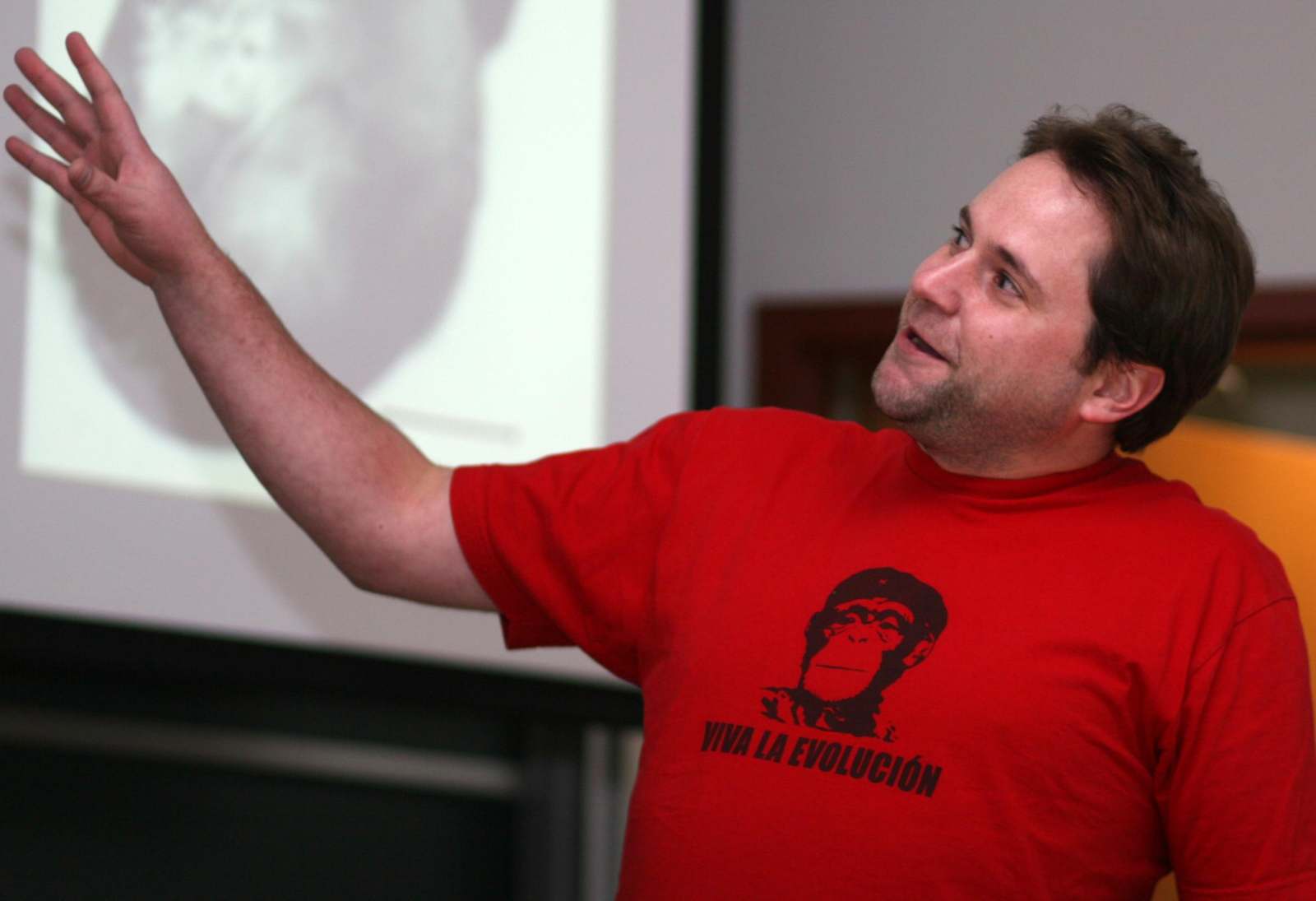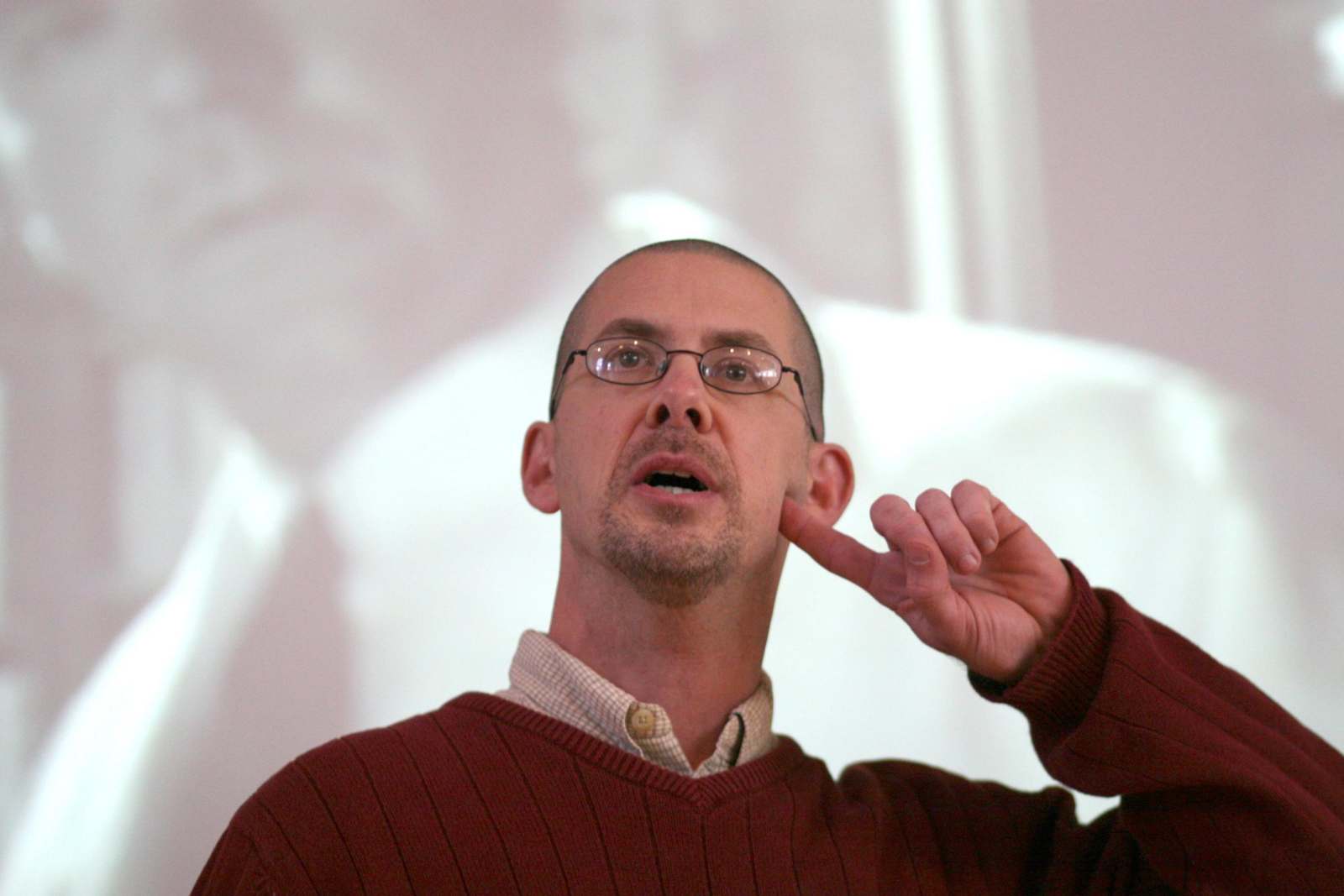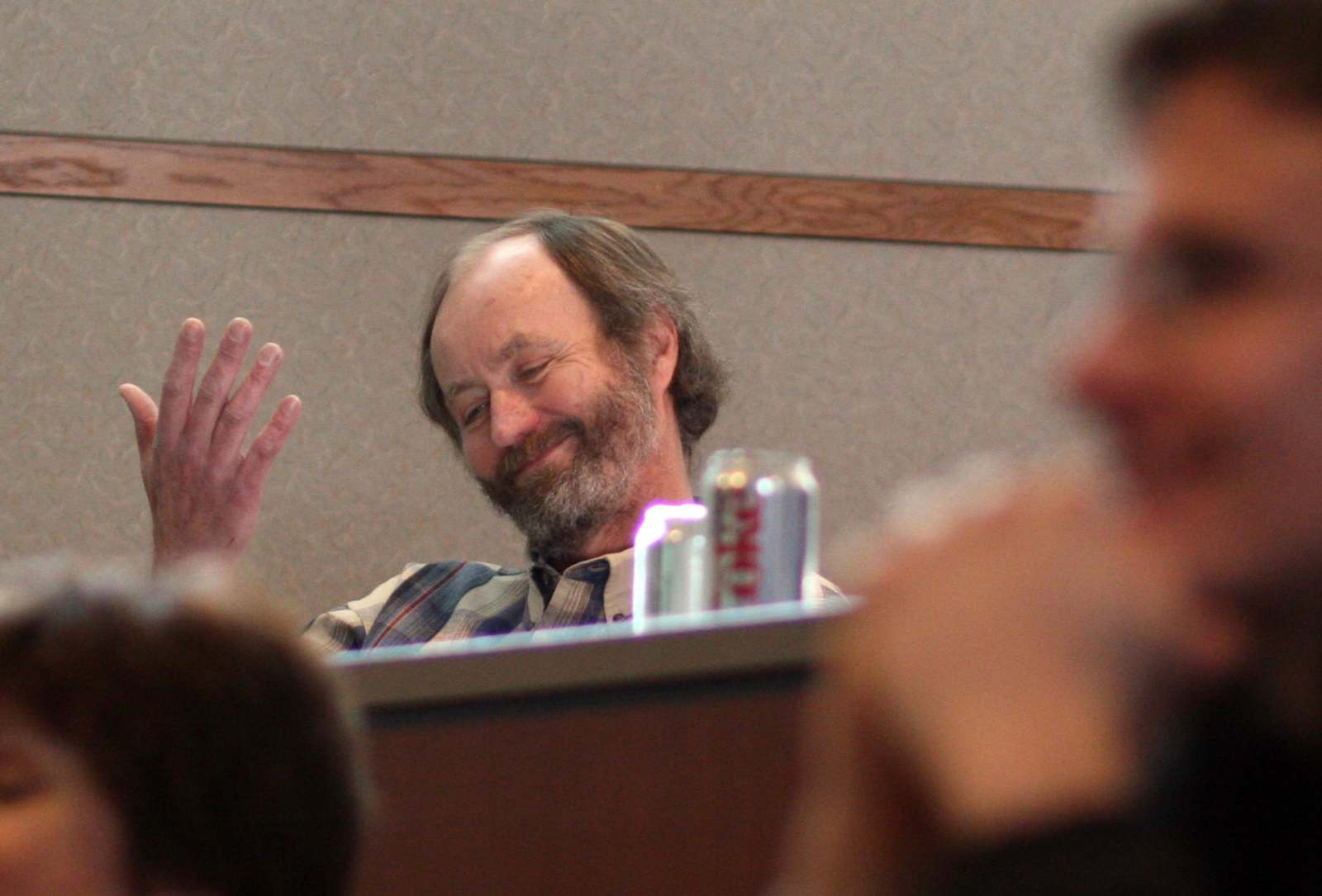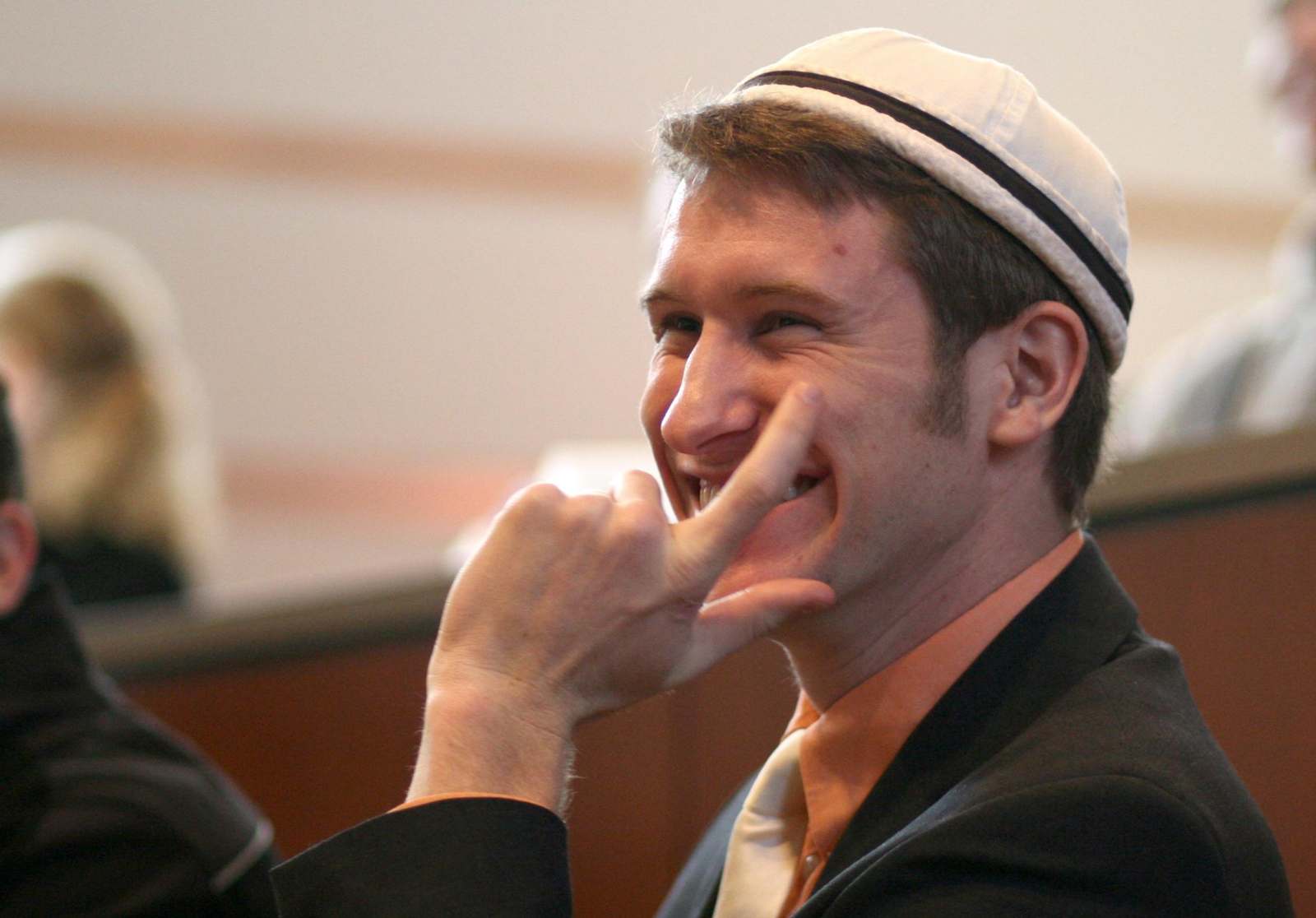Celebrating Darwin's Birthday Album One
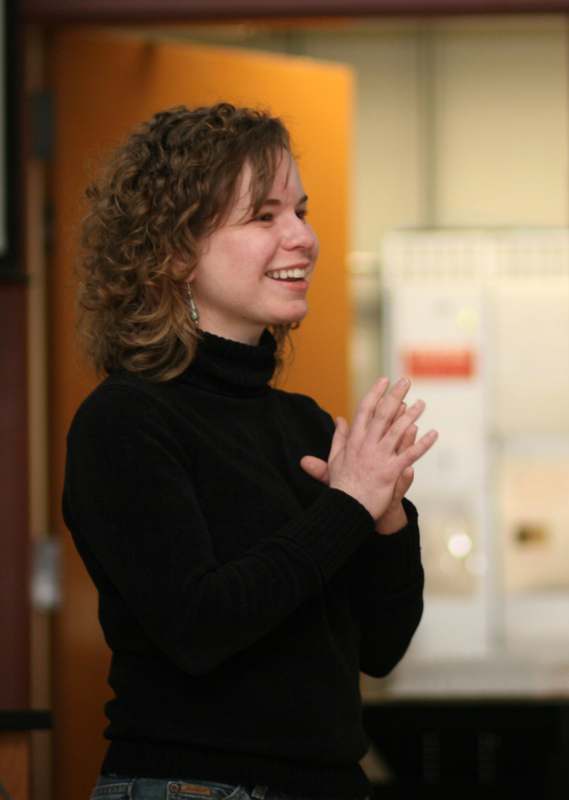
Assistant Professor of Biology Amanda Ingram invited the campus to join
the Biology Department Thursday for an "Adaptation Celebration. "Biology
professors will regale you with tales of their favorite adaptations that
evolved by natural selection," Professor Ingram had promised, which turned
out to be a lot more fun than most might have guessed. The celebration
marked the 200th anniversary of Charles Darwin's birth. Professor Ingram's
favorite adaptation: flowers!

Professor David Polley's favorite adaptation got the party off to a good
start. His favorite adaptation: Sex. "Sex, defined as the combination of
two genomes in one cell, requires cell fusion and subsequently chromosome
reduction through meiosis," Professor Polley explained with a reasonably
straight face. "In early eukaryotes, which were unicellular, there likely
was an advantage to combine resources during periods of starvation by cell
fusion. Thus sex may have originated as an adaptation to stress."
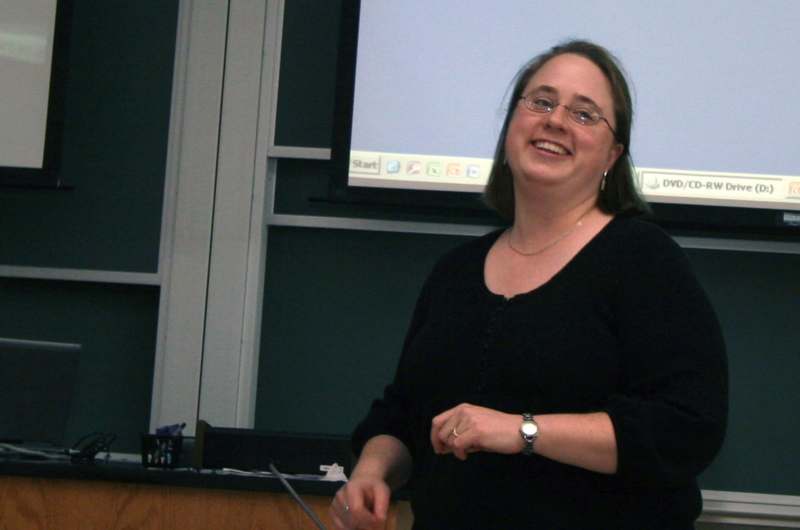
Assistant Professor of Biology Rebecca Sparks-Thissen's favorite
adaptation involves bacteria. "Bacteria can use a wide range of energy
sources and are not dependent on oxygen or glucose for energy as we are,"
Professor Sparks-Thissen said. "This allows them to grow in all sorts of
different environments that we think of as places where life doesn't exist
including hot springs and high pH environments."

